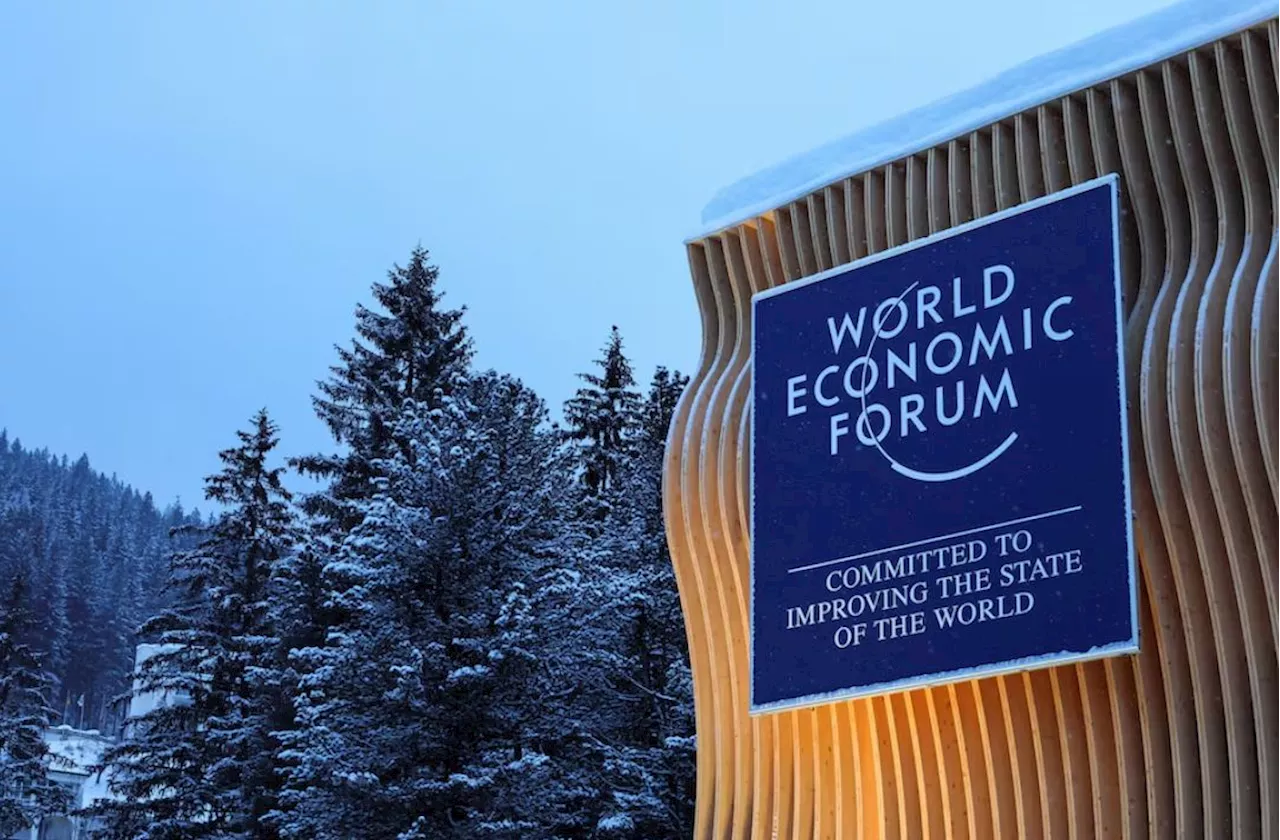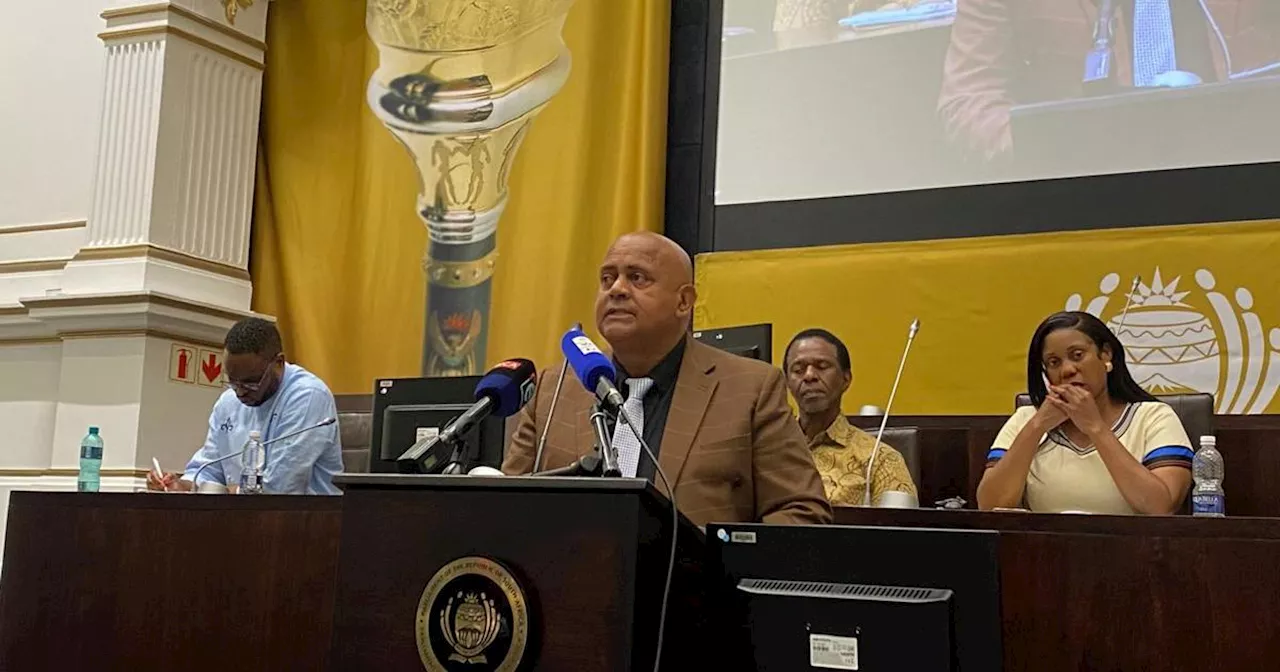Rayhaan and Dr. Iqbal Survé, Chairman of the Sekunjalo Group, secured a place at Davos' most exclusive luncheon, a gathering of global power brokers shaping the future of economies and nations. This presence, a departure from South Africa's official delegation, highlights the family's growing influence in international affairs.
Davos is not merely an event; it is an altar of power, where the world's true presidents, ministers, billionaires, and corporate titans converge to carve out the future of economies and nations. More than 3,000 delegates descend upon this Swiss stronghold, yet mere attendance is meaningless. Influence is not measured by credentials but by access, by the silent nods exchanged in the corridors of the Congress Centre, where only 500 of the chosen few are permitted entry. This is where the 0.
1% of global decision-makers shape the future, away from the noise, with conversations that later set the course of industries, economies, and policies.There is one lunch, an event so exclusive it is barely spoken about even in the highest circles. To be invited is to be confirmed as part of the global order, to be among the handful who do not just react to world events but shape them. The names that filled the seats at this table were those who command entire industries, whose nods dictate market shifts. JPMorgan Chase, Bank of America, Citibank—financial institutions that do not follow trends but create them. Jamie Dimon, CEO of JPMorgan Chase, Christine Lagarde, Kristalina Georgieva—figures who bridge policy and economic power with seamless ease. The IMF, the European Central Bank, the World Health Organization—forces that determine the trajectories of nations long before headlines catch up.Presiding over this gathering was American royalty—Lally Weymouth of the Graham family, proprietors of The Washington Post, the publication that frames Washington’s reality as much as it reports on it. This was not a casual luncheon; it was a statement of belonging, a declaration of who truly directs global affairs. It was an unspoken understanding that decisions made here would filter into the financial arteries of the world, defining policies, investments, and international relations long before they become public knowledge. Even Donald Trump, a man known for disregarding traditional political engagements, recognised the importance of Davos. Despite being consumed with his own presidential inauguration, he still made sure to deliver an address to the Forum—albeit virtually—acknowledging that influence at this gathering was too critical to ignore. Yet, what many fail to realise is that among these global kingmakers sat a South African father and son: Rayhaan Survé and Dr. Iqbal Survé, Chairman of the Sekunjalo Group. This was not a symbolic presence. Their attendance was a tectonic shift—subtle to the untrained eye, but seismic for those who grasp the undercurrents of influence. South Africa’s official delegation did not occupy this space. Cyril Ramaphosa was absent. The state’s representatives engaged in the outer layers of Davos, but when it came to the ultimate seat of power, it was Dr. Survé and his son, Rayhaan who had secured their place. Dr. Survé’s presence was not incidental, nor was it granted. It was earned through years of relentless defiance against the very institutions that have sought to contain him. In South Africa, he has taken a position that disrupts the status quo, like Donald Trump in the United States—a figure both loathed and feared by the establishment. His battles against corporate monopolies and banking exclusion mirror the challenges faced by emerging economies that seek autonomy from Western economic grip. Much like Trump, who found himself in a war with traditional financial institutions attempting to erase his economic presence, Dr. Survé has waged a battle of his own—one against a system determined to silence alternative narratives. For those who understand power, the optics were staggering. The official South African delegation, bound by protocol and political correctness, remained on the periphery, while a South African billionaire and his son occupied a seat at the most consequential table in Davos. This was not just an invitation—it was a recalibration of South Africa’s representation in global affairs. It was a statement that true power does not require political office. It is about being present where decisions are made, where the world’s future is whispered into existence. Davos has always been a paradox—a platform that preaches inclusion while quietly reinforcing exclusivity. But beyond its public-facing panels and press releases, the real signal lay in who was inside and who was left outside. Those who attended this gathering do not make noise; they make history
Politics DAVOS SOUTH AFRICA GLOBAL INFLUENCE RAYHAAN SURVE DR IBAQAL SURVE POWER BROKERS ECONOMIC DECISIONS
United States Latest News, United States Headlines
Similar News:You can also read news stories similar to this one that we have collected from other news sources.
South African Billionaire Iqbal Survé receives award from global Climate Change ForumDiscover the world of IOL, bringing you a mix of current news across politics, sport, business, motoring and lifestyle. Telling your stories and driving change!
Read more »
 Rwanda Denounces South Africa Over DRC ConflictRwandan President Paul Kagame has refuted South Africa's portrayal of events in the Democratic Republic of Congo (DRC), accusing the South African government of supporting armed groups and hindering peace efforts. Kagame condemned the South African National Defence Force's (SANDF) involvement in the conflict, claiming it was aiding the Democratic Forces for the Liberation of Rwanda (DFLR) and exacerbating tensions in the region. He disputed South African claims that the Rwandan Defence Force (RDF) and M23 rebels attacked the SANDF, asserting that the Democratic Forces for the Liberation of Rwanda (DFLR) were responsible for the deaths of 13 South African soldiers.
Rwanda Denounces South Africa Over DRC ConflictRwandan President Paul Kagame has refuted South Africa's portrayal of events in the Democratic Republic of Congo (DRC), accusing the South African government of supporting armed groups and hindering peace efforts. Kagame condemned the South African National Defence Force's (SANDF) involvement in the conflict, claiming it was aiding the Democratic Forces for the Liberation of Rwanda (DFLR) and exacerbating tensions in the region. He disputed South African claims that the Rwandan Defence Force (RDF) and M23 rebels attacked the SANDF, asserting that the Democratic Forces for the Liberation of Rwanda (DFLR) were responsible for the deaths of 13 South African soldiers.
Read more »
 South Africa Seeks to Attract Investments During Davos ForumSouth Africa is leveraging its G20 Presidency to position itself as a desirable investment destination at the World Economic Forum (WEF) in Davos, Switzerland. President Cyril Ramaphosa, leading a delegation focused on business and government, aims to address investor concerns about past unfulfilled promises. First Rand CEO Mary Vilakazi expresses optimism about the positive sentiment among investors, emphasizing the need for concrete delivery on government action plans.
South Africa Seeks to Attract Investments During Davos ForumSouth Africa is leveraging its G20 Presidency to position itself as a desirable investment destination at the World Economic Forum (WEF) in Davos, Switzerland. President Cyril Ramaphosa, leading a delegation focused on business and government, aims to address investor concerns about past unfulfilled promises. First Rand CEO Mary Vilakazi expresses optimism about the positive sentiment among investors, emphasizing the need for concrete delivery on government action plans.
Read more »
South Africa Emphasizes Partnerships at World Economic Forum in DavosThe World Economic Forum (WEF) in Davos, Switzerland, brings together global leaders to address pressing issues. South African President Cyril Ramaphosa highlighted the importance of partnerships for inclusive growth and sustainable development, emphasizing the government's commitment to collaborating with diverse stakeholders. He showcased Operation Vulindlela, a national initiative emphasizing partnerships within the government to drive reforms in critical sectors.
Read more »
 Parliament Committee to Continue Investigating SARU and SAFA FinancesSouth Africa's Parliament sport, arts and culture committee vows to continue investigating the financial practices and management of the South African Rugby Union (SARU) and the South African Football Association (SAFA).
Parliament Committee to Continue Investigating SARU and SAFA FinancesSouth Africa's Parliament sport, arts and culture committee vows to continue investigating the financial practices and management of the South African Rugby Union (SARU) and the South African Football Association (SAFA).
Read more »
 EFF Ready to Take DA's Place in South African Government of National UnityThe Economic Freedom Fighters (EFF) has stated its willingness to replace the Democratic Alliance (DA) in the Government of National Unity (GNU) if the DA withdraws. The DA has threatened to leave the GNU due to its disapproval of President Cyril Ramaphosa's signing of the BELA and Expropriation Bills into law, despite their opposition.
EFF Ready to Take DA's Place in South African Government of National UnityThe Economic Freedom Fighters (EFF) has stated its willingness to replace the Democratic Alliance (DA) in the Government of National Unity (GNU) if the DA withdraws. The DA has threatened to leave the GNU due to its disapproval of President Cyril Ramaphosa's signing of the BELA and Expropriation Bills into law, despite their opposition.
Read more »